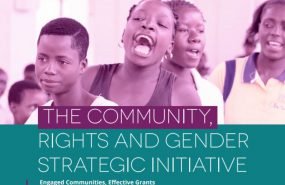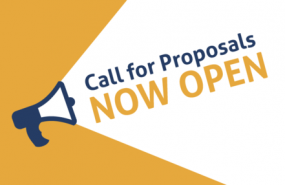CRG SI partners representing the Robert Carr civil society Network Fund (RCNF) Grantees and the Regional Communication and Coordination Platforms gathered in early October in Marrakech, Morocco to network and learn from each other. And the issue of the initiative coming to its end was one of the key questions that worried all of the participants. Regional Platform-EECA was represented by Kateryna Maksymenko, the Manager of the project from Alliance-Ukraine Consultancy and Igor Gordon, the project coordinator on behalf of EHRN. There is a broad consensus that the initiative was successful in achieving its objectives, and that there is a lot of additional important work that needs be done.
“I hope they don’t cancel the CRG. It’s needed now more than ever,”
said Olive Mumba, Executive Director of the Eastern Africa National Networks of AIDS Service Organizations (EANNASO).
“We have just begun the process, it would be very unfortunate if the CRG SI didn’t continue.” – she noted.
EANNASO is the host of the regional platform for Anglophone Africa. Sergey Votyagov, Director of the Robert Carr civil society Network Fund said:
“An investment has been made, and it should be continued.”
For the RCNF grantees and the Regional Platforms, work only began in earnest in June 2015, while two of the Regional Platforms did not sign their contracts until early 2016. The meeting in Morocco was the first time that many representatives were given the opportunity to learn about the other organizations and how they might work together. For example, it is outside of the mandate of the Regional Platforms to engage in advocacy – however, this is well within the mandate of RCNF grantees. Opportunities for more effective advocacy through partnerships between the Platforms and RCNF grantees may have gone unseized in some cases.
CRG stakeholders note that the initiative has not only performed the function it set out to, but has also filled an important gap in communication, coordination, and networking needs that was previously ignored. While the CRG SI had originally been put in place to assist civil society and community groups to adapt to the new funding model, CRG partners told Aidspan that the initiative is proving to have value beyond its intended purpose. For example, in advance of the third Global Fund Partnership Forum to develop the Fund’s new strategy for 2017-2022, which took place in the Eastern Europe and Central Asia (EECA) region, all regional key populations networks prepared and signed a joint position statement, unprecedentedly emphasizing the need to prioritize transgender communities in EECA’s regional AIDS response.
The good news is that the CRG SI has made it onto the Global Fund Agenda for their next Board Meeting in November. If the Board approves the continuation of the program, it will no longer be considered a “Special Initiative” but would be rebranded a “Strategic Initiative”, to be funded out of catalytic funding.
There’s no question that in the minds of partners and beneficiaries that the CRG SI is providing an important service which should be continued. However, there are questions around how it should continue, who should be involved, and how much money should be allocated. The formal review of the CRG SI that is currently underway will shed light on whether the CRG SI partners have the technical capacity to effectively operate, or if they could they benefit from additional human resources. In advance of the review and the November Board meeting, many CRG SI partners must wait in anticipation about the future of the initiative.
Source: GFO Aidspan







